 A Singapore Government Agency Website.
A Singapore Government Agency Website.
Government officials will NEVER ask you to transfer money or disclose bank log-in details over a phone call. Call the 24/7 ScamShield Helpline at 1799 if you are unsure if something is a scam.
How 3 youths with disabilities are empowering others through The Purple Parade 2023
Written by: Ong Chin Wen
Published: 9 November 2023, 10:01 AM
Photo credit: LINKEDIN/WINSTON WONG, THE PURPLE PARADE
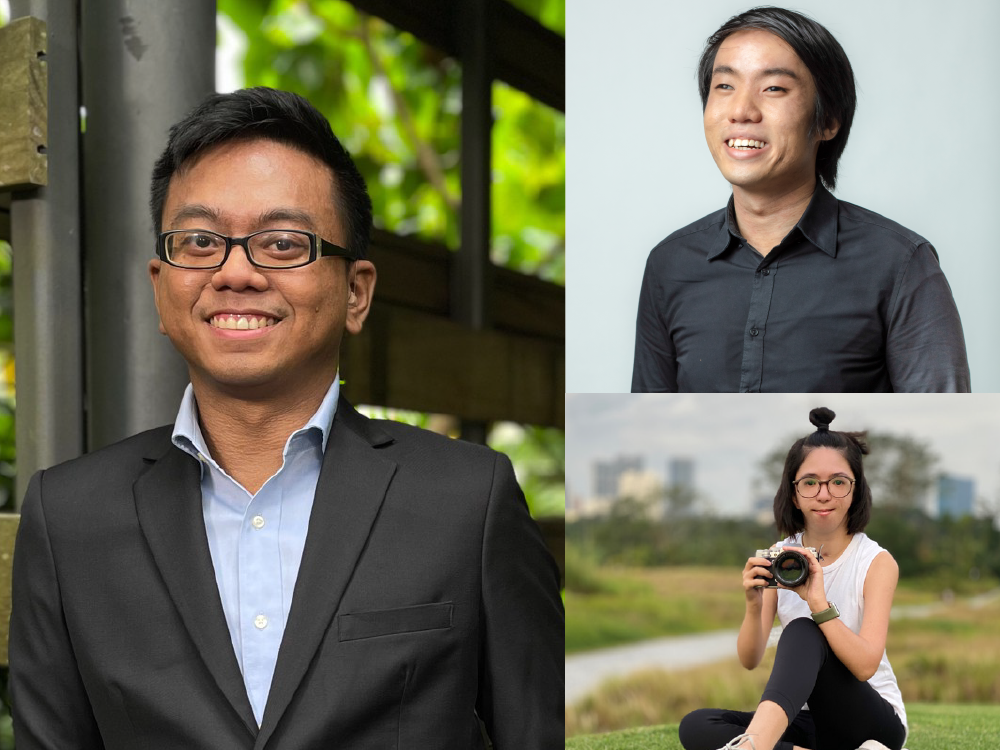
To three young Persons with Disabilities (PwDs), The Purple Parade means more than just an event.
This year’s run saw 13,000 participants in the main event that happened on Saturday (Nov 4) at Suntec City. The initiative is Singapore’s largest movement to support inclusion and celebrate the abilities of PwDs.
Youthopia spoke with 26-year-old Joshua Tseng, 35-year-old Winston Wong and 29-year-old Isabelle Lim, who sat on this year’s planning committee.
Sharing their journey
Winston, a manager for volunteer management at the Ministry of Family and Social Development, has not always been open to sharing about his disability with others.
At four years old, he started experiencing hearing loss. By the time Winston was 10, he had to wear hearing aids.
Growing up as a PwD, he often faced discrimination in primary and secondary school. The lack of support from his classmates made Winston feel isolated and unaccepted by society.
“Back then I was bullied a lot and it turned me into someone very withdrawn, because I didn’t want to risk hearing the wrong things and replying [to] the wrong things and becoming a laughing stock,” he recounted.
A turning point came when Winston received the Asia Pacific Breweries Foundation Scholarship for PwDs in 2013. He was asked to go onstage and share about his life journey at the award ceremony.
For him, it was an unforgettable moment as he had never spoken openly about his disability with anyone, let alone in front of other award recipients and the media.
“I realised that when I talked, I actually enjoyed it. Initially I thought people would judge me, but in fact when I went on stage, people were listening so attentively. In that moment, instantly it changed my perspective,” he said.
From then on, he became more active in advocating for PwD inclusivity through different platforms. Winston is currently an Inclusion Champion at SGEnable and a council member of the National Youth Council (NYC).
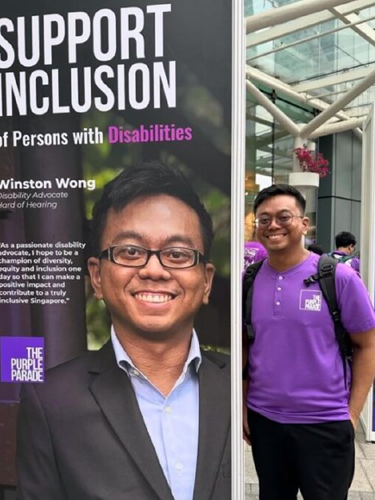
In this year’s run of The Purple Parade, Winston took on the role of briefing event volunteers on disability awareness. PHOTO CREDIT: INSTAGRAM/@WWONGCF
“I learnt that the onus is on me to share with other people the difficulties that I face and the support that I need and how [I] myself can give back,” he said.
Similarly, Josh, director of digital accessibility services at Etch Empathy, also advocates for PwD-related causes and frequently shares his personal experiences with vision impairment.
After being diagnosed with congenital glaucoma at seven years old, his vision gradually deteriorated. At 16, Josh found that he could no longer see or read anymore.
Upon losing his vision, he felt that it was hard to come to terms with the significant changes in his life.
He shared: “I had to accept my current living situation, and that was the biggest challenge to me at that time.”
But after seeing the impact that sharing his story could have, Josh realised that his story had “a lot of power.” He became passionate about PwD advocacy through public speaking and content creation.
“A lot of opportunities came my way for me to talk about my particular situation and share with other people. I took every opportunity that came my way.”
Like Winston and Josh, Isabelle also actively shares her journey as a PwD living with deafness and Nager Syndrome.
Currently, she runs her own photography business issyshoots, describing herself as a photographer that is able to “see through silence”.
Aside from photography, Isabelle shares about her experiences as a PwD through other creative means.
Back in 2020, Isabelle was an integral part of the music video for Signing Hands, which premiered in The Purple Parade.
The music video started from a poem she wrote on her personal experiences as deaf person and the people that supported her. It was then turned into a song by her cousin Yin May, a singer-songwriter and mother of a special needs child. The two collaborated on the project, alongside other artists with and without disabilities.
“It was our dream to make [the music video] an inclusive one and Purple Parade was a perfect platform to launch our song,” she said, “Most importantly, this song is about people with disabilities having their voices heard.”
Isabelle believes that there are many more ways to share her story and give back to her community.
“Penning poems shall not be my only way to contribute to society. There are many ways to lend my hands… Lending my eyes as a photographer or contributing little ideas not only for this year’s but for many parades to come,” she said.
A learning experience
For Josh, working at Etch Empathy made him curious about other areas of PwD inclusivity. This interest drove him to get involved in this year’s The Purple Parade.
“I still have a lot to learn about the sector, I don’t know a lot of things,” he said, “So I found that the best way to learn is to just be there. To see how other people do their thing, talk to people and just be open to new experiences and along the way contribute and value add where I can.”
His responsibilities as an organiser of this year’s The Purple Parade includes contributing to the campaign sub-sector. A part of the campaign is The Blindfold Challenge video on the initiative’s social media platforms, of which Josh was proud to take part in the creative process.
Winston was also motivated by his desire to learn more about The Purple Parade, particularly about how it would be planned.
Since 2017, he has been an active participant in The Purple Parade’s march-past. This year marks the first time that Winston joined in as an organiser.
By being a part of the organising committee, he is able to see The Purple Parade from a different perspective. In this role, he has a ‘bird’s eye view’ on the initiative’s planning processes.
“In a way, it allows me to understand all the hard work that goes behind the scenes,” Winston said.
As organisers of The Purple Parade, they believe that the initiative can also be a learning opportunity for other youths.
Making a larger impact on society
To Winston, The Purple Parade goes beyond the events and celebrations. He wishes that other people can remember the initiative as something meaningful to their lives.
“I hope that they bring it back [to] wherever they come from, be it from their workplace, whether it is school or whatever, bring back these ideals or thoughts about inclusion or being in an inclusive society and spread the ideals around,” he said.
For Isabelle, she wishes that the movement can help youth PwDs to feel a sense of belonging in society.
She shared: “I hope to see new faces coming forward with their stories of what moulded the present you and how they would prefer the world to be.”
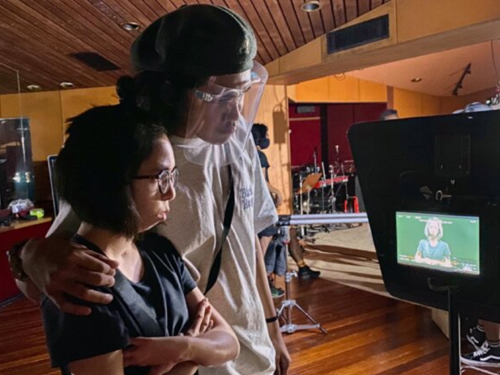
Isabelle returned as a part of the campaign committee after her involvement as a photographer in 2021 and a creator of “Signing Hands” in 2020. PHOTO CREDIT: ISSYSHOOTS
Apart from supporting PwDs, she hopes that The Purple Parade will be a platform for youths to change their perceptions about the community. Approaching PwDs to understand more about the community is something that she encourages youths to do more of.
“Although the awareness of disabilities [is] getting better as more people with disabilities come forward to speak up, many people still do not know how best to approach us,” Isabelle said. “There is no difference between you and me; I am just differently abled.”
As for Josh, he shares similar beliefs with Mayor Denise Phua on the initiative. They both “want a future where Purple Parade doesn’t exist.”
Josh envisions this future as a world “where disabilities have become such a big part of people’s conceptualisation of being human that it no longer becomes something that is interesting or becomes special or needs specific attention drawn to it.”

National Youth Council Singapore Blk 490 Lorong 6 Toa Payoh
HDB Hub Biz Three #04-10
Singapore 310490
REACH US Email: nyc_enquiries@nyc.gov.sg JOIN OUR MAILING LIST
© 2022 Copyright National Youth Council Singapore
